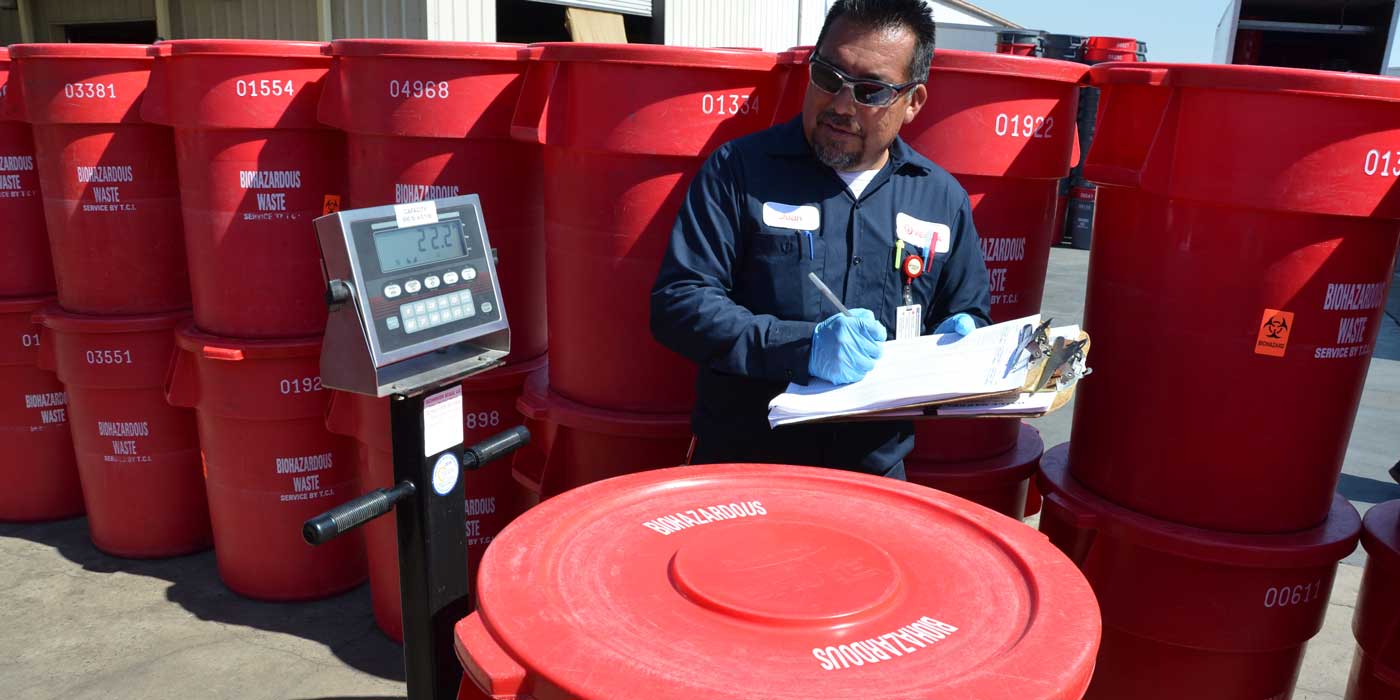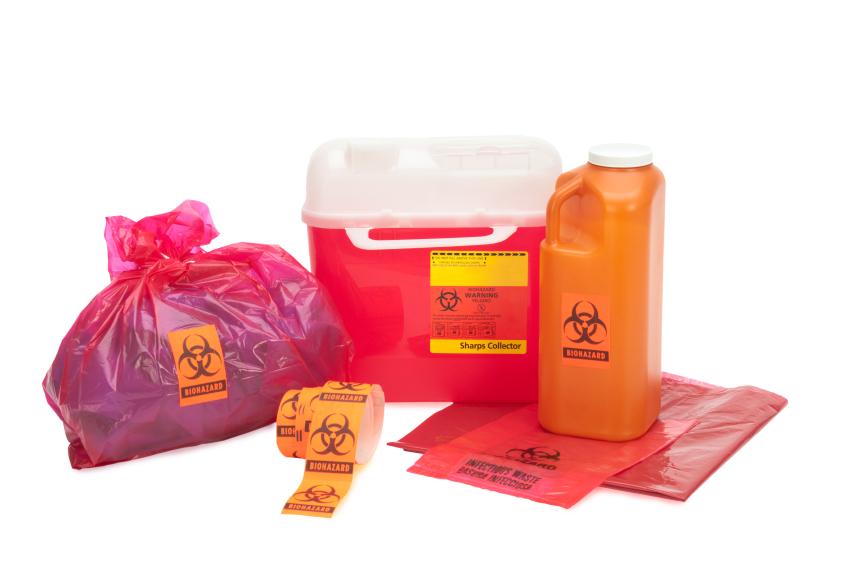Local Commitment: Your Community's Leading Medical Waste Removal Near Me
Comprehending the Various Sorts Of Waste Disposal Strategies
In the world of waste monitoring, the array of disposal methods available today is vast and varied, each technique serving an unique purpose in addressing the challenge of garbage disposal. click here. From reusing methods that aim to offer new life to products, to the elaborate procedures of unsafe waste management, the landscape of garbage disposal is complicated yet important for ecological sustainability. Comprehending the subtleties of these different strategies not only clarifies the value of accountable waste monitoring but likewise triggers us to rethink our strategy in the direction of garbage disposal in a swiftly progressing world

Recycling Methods
Recycling techniques are vital for sustainable waste management practices in both commercial and household settings. medical waste removal near me. By carrying out reliable recycling techniques, a substantial quantity of waste can be diverted from land fills, conserving natural deposits and minimizing the environmental impact of production processes
In houses, curbside recycling programs play an essential role in encouraging households to different recyclable materials from basic waste. Materials such as paper, plastics, glass, and steels can be sorted and accumulated for processing into new items, decreasing the demand for resources and energy-intensive production procedures.
Industrial centers likewise count on reusing techniques to decrease waste generation and promote a round economy. By executing closed-loop systems, organizations can reuse products within their manufacturing processes, lowering costs and ecological impact. medical waste removal. Additionally, commercial recycling programs frequently entail collaborations with specialized recycling facilities to make sure that products are properly sorted, processed, and reintegrated into the supply chain
Composting Strategies

Oxygenated fixed heap composting entails mixing natural waste products in a large heap and consistently turning it to make sure appropriate aeration. This technique is efficient for large composting operations. On the various other hand, vermicomposting uses earthworms to damage down raw material into nutrient-rich spreadings. This technique is fit for smaller-scale operations and houses.
In-vessel composting entails placing organic waste in a shut container with regulated conditions for temperature level and oygenation. This method works for managing food waste in urban areas. Windrow composting includes developing long rows of natural waste and routinely transforming them to advertise disintegration. This technique is typically made use of in farming setups.
Landfill Disposal
Landfill disposal is a typically utilized method for handling waste that can not be recycled or composted. Methane gas, a result of decaying natural waste in garbage dumps, is frequently collected and made use of as a source of sustainable energy. Initiatives to minimize reliance on landfills consist of promoting waste reduction, recycling, and exploring alternative waste disposal methods to check over here decrease the environmental footprint linked with standard land fill disposal techniques.

Waste-to-Energy Incineration
Incineration of waste for power generation is a method progressively being considered as an option to typical garbage dump disposal strategies. Waste-to-energy incineration involves the combustion of waste materials at high temperature levels, generally in specialized facilities made to produce power or heat with the procedure - click here. This technique not only lowers the volume of waste that would certainly otherwise be destined for garbage dumps yet also utilizes the warmth produced during incineration to produce power
Among the key advantages of waste-to-energy incineration is its capability to create electricity while reducing the ecological influence contrasted to traditional garbage dump disposal methods. By transforming waste right into power, this method assists in minimizing greenhouse gas discharges and dependence on fossil gas for energy generation. In addition, waste-to-energy centers are equipped with advanced air pollution control innovations to alleviate prospective toxic wastes launched throughout the combustion process.
Contaminated Materials Administration

Taking into consideration the essential relevance of liable waste administration techniques, specifically in the realm of environmental sustainability, the focus currently moves towards the intricate domain name of Contaminated materials Monitoring. Contaminated materials presents considerable risks to both human wellness and the setting, requiring customized handling and disposal methods. Typical examples of unsafe waste include chemicals, batteries, chemicals, and digital waste.
Contaminated materials Management entails the identification, collection, transport, therapy, and disposal of materials regarded possibly dangerous or unsafe. This process requires adherence to rigorous policies and standards to reduce adverse effect on communities and public health. Different methods are employed in handling contaminated materials, consisting of recycling, secure garbage dumps, encapsulation, and chemical treatment.
Appropriate Unsafe Waste Administration is crucial for preventing contamination of dirt, water resources, and air contamination. It is crucial for industries, labs, medical care facilities, and other generators of dangerous waste to execute durable monitoring techniques, training programs, and emergency situation response plans to make sure the risk-free handling and disposal of these products. Failure to manage harmful waste suitably can have far-reaching repercussions, emphasizing the relevance of liable and thorough methods in this area.
Verdict
Finally, waste disposal methods play a crucial role in managing and reducing the effect of waste on the atmosphere. From reusing and composting to landfill disposal and waste-to-energy incineration, each approach has its own benefits and restrictions. Correct monitoring of unsafe waste is additionally vital to safeguard public health and wellness and the atmosphere. It is very important for people and industries to comprehend the different waste disposal techniques available and choose the most ideal approach for sustainable waste management.
In the world of waste administration, the array of disposal strategies readily available today is large and varied, each approach serving an unique purpose in addressing the obstacle of waste disposal. click here. From recycling methods that intend to offer new life to materials, to the detailed procedures of harmful waste administration, the landscape of waste disposal is complex yet crucial for ecological sustainability. Comprehending the nuances of these various techniques not just loses light on the value of liable waste administration but additionally triggers us to reassess our technique towards waste disposal in a swiftly developing world
Efforts to minimize reliance on land fills include advertising waste reduction, reusing, and discovering different waste disposal techniques to decrease the environmental impact connected with typical garbage dump disposal techniques.
It is essential for people and industries to comprehend the different waste disposal methods readily available and select the most ideal method for lasting waste monitoring.